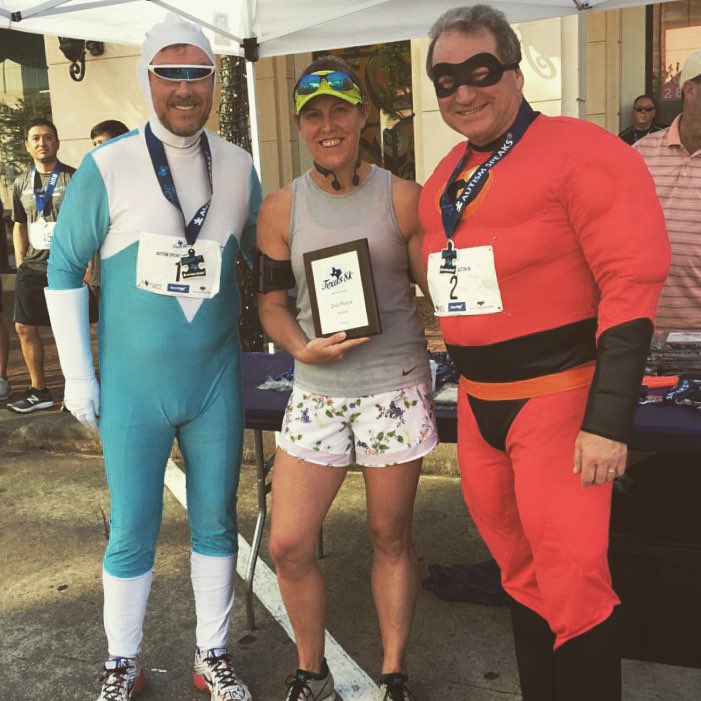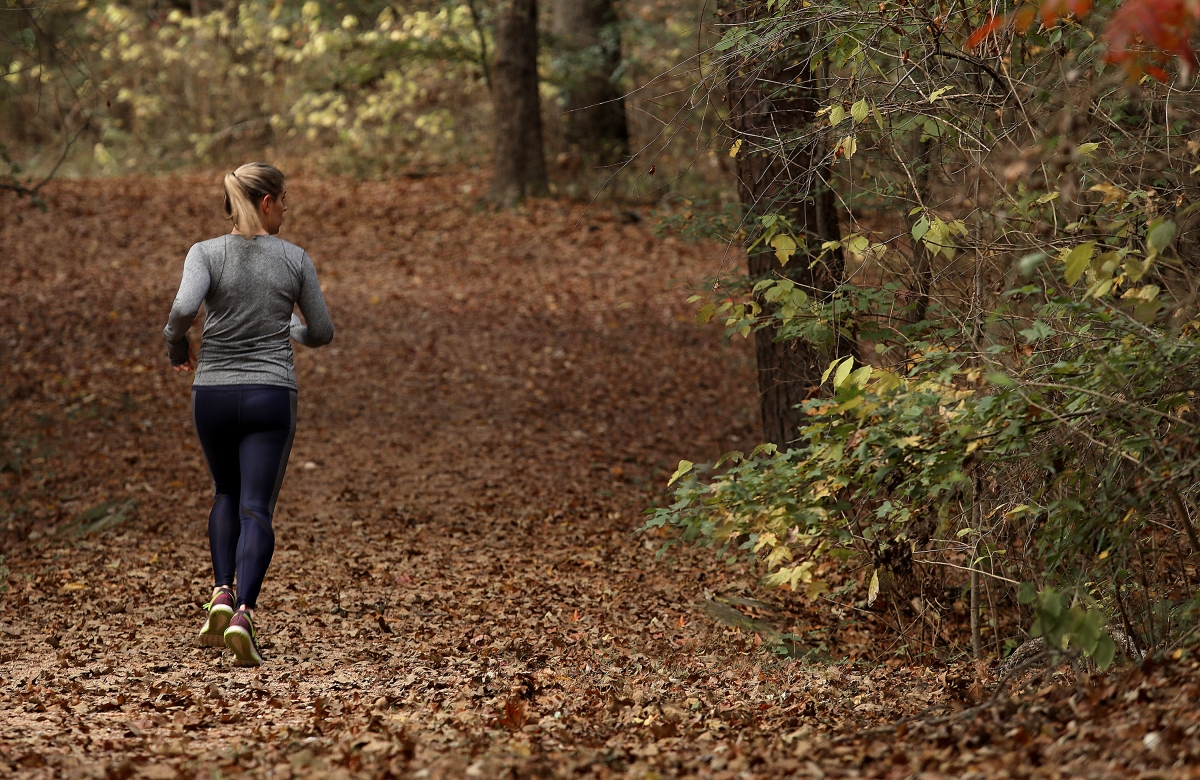Over the past few months I’ve had a solid training experience, with what I expect to be enduring results. The two main factors bringing this about were hiring out my training program and building a meditation practice.
As I handed out water at the Houston Marathon in January, I found myself craving a new goal race to train for, but not feeling enthused to run a lot of long, slow miles, so I ruled out the marathon and the half. My 10k experience was lacking and efforts sporadic. My PR according to my Garmin was nested in the last portion of a half marathon in 2017. Imagining myself training for a 10k, I felt intimidated, then inspired to commit to the 6.2.
Buying into Accountability and Win #1: Embracing the Tempo Run
I outsourced my running program for this training cycle, as I had decided the 10k would be a good challenge for myself mentally and physically, but I was inexperienced with the approach. I had started following the Strength Running Podcast, hosted by Jason Fitzgerald, with the enthusiasm of a fanatic. One of the things I like the most about the content of the podcast was the approach and depth to which the psychology of running, especially longer distance running, is addressed. Neither the guests nor the host left grit to mystery. Whether holding on through hard miles or repetitive ones, there was consensus that if you tended to show up consistently, no matter how the individual workouts went, you would trend towards success.
Tempo runs have been gnarly to me in adulthood. Conceptually, I know I can do these faster, longer runs at threshold pace because even at 3-4 miles they are slower than even my moderate 5ks. In putting money down on this program, I was in part buying a compulsion to do the tempo runs.
Going back to what I wrote earlier, the trend is what’s important, not the individual workouts. There was one workout I did end early. I did not feel good about it but I spent about a mile and a half of the tempo-pace portion trying to get up to speed, but I couldn’t run any faster. Then I almost couldn’t run at all. I had tried to put the run midday and I was both sluggish and stressed from work and it just wasn’t happening. However, I didn’t let that deter me, and my next tempo workout was perfectly on pace. As I kept going with the tempo runs, they became easier to approach, and I actually found myself having fun with them, using them to practice holding my focus on my running rather than trying to distract from it- enter meditation.
Meditation and Staying with My Run
Research and anecdotal evidence support practicing meditation, but I have struggled to get on board for years. Meditation was introduced to me in rehab, and I hated it. It was guided by a counselor, and I didn’t like sitting still and I really didn’t like being told what to think about. When it was time to meditate, usually in the morning, I would just let myself doze. I tried the Calm App a few years ago, and doing sessions on my own worked better for me than group meditations, but I couldn’t make a regular habit of it for very long, and eventually I gave up on that one as well.
This spring, I found out about the 50-day Waking Up meditation course, in an app created by Sam Harris. I wanted to give the whole mediation thing another go. I completed the entire 50-day course, although it took me longer than 50 days (maybe 60). It was just simple enough to stick with it, though at times it was pretty hard to stay with the guidance. Sam says enraging things like “Consciousness is not inside your head, your head is inside consciousness”, and suddenly a lobotomy sounds cool. Still, I’m totally on board with meditation now, as I felt changes in even that short a time span. I have kept up with daily meditations in the app as much as I can.
As for what meditation brought to my running, there really was a general “mellowing out” of my physical, mental, and emotional state while running and racing. When running is painful, boring, or intimidating, as in a race, I am practicing just observing the internal and external situation, without trying to close in or get further away from it. I emphasize “practice” because of course I don’t do it perfectly and I will lapse into murky emotional spots. I find that I can be in a great mood or a stinky mood about the run, and still execute on my workout or race plan, and I approach obstacles to doing so with more self-compassion. I am more accepting of what I am bringing to my runs, and what they are bringing to me.
One of the reasons I was able to maintain consistency this time around because each session was an emotionally blank slate. Going back to the Strength Running podcast, I am drawn to it partly because of how often and with what depth the psychological components of racing and training are discussed. It often feels like I feel and express more self-doubt than self-confidence in my running career. Synthesizing the accounts of other runners with my own experience, and observing how my self-talk trends through meditation, allowed the space for sucky runs to just be sucky runs, and move on to the next workout or life-thing with a little more grace, and curiosity instead of apprehension.



You must be logged in to post a comment.